Silent Prayer, Synagogue of Amsterdam, “The Amidah”
Jacques-Émile-Édouard Brandon
1897
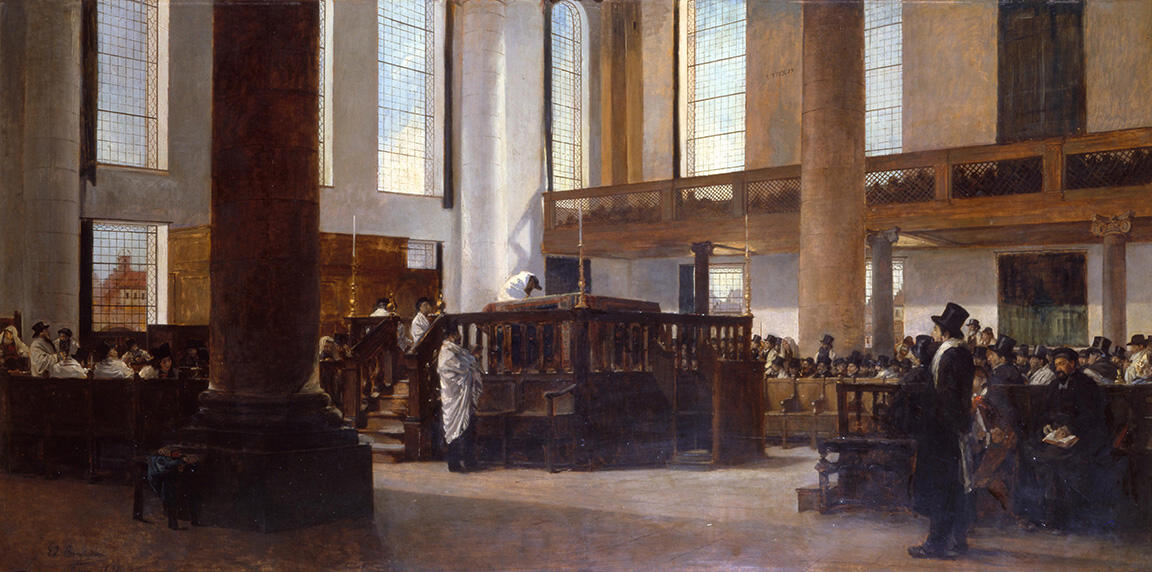
Related Guide
Jewish Visual and Material Culture at the Turn of the Twentieth Century
Increasingly culturally integrated, Jewish fine artists, designers, and photographers produced dazzling works of art and considered cultivating a distinctive national art.
Creator Bio
Jacques-Émile-Édouard Brandon
Born into a Bordeaux family with Western Sephardic roots, Jacques-Émile-Édouard Brandon studied at the École des Beaux-Arts in Paris and initially made his reputation with depictions of Christian subjects, particularly his series on the life of St. Bridget of Sweden. In the 1860s, he shifted markedly to Jewish themes, notably synagogue and classroom scenes, the Sabbath, and portrayals of rabbis with children. While Brandon’s style was academic, he did show his Scene in a Synagogue and other works at what came to be seen as the first Impressionist exhibition in Paris, in 1874.
You may also like
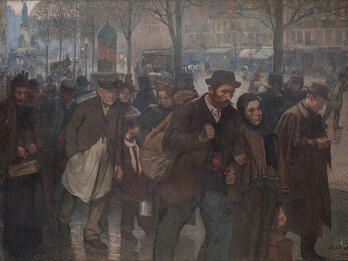
Les Las (The Weary)

Sermon dans un oratoire israélite (Sermon in an Israelite House of Prayer)
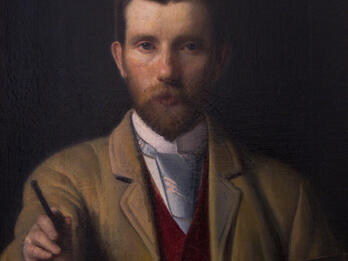
Self-Portrait with a Palette
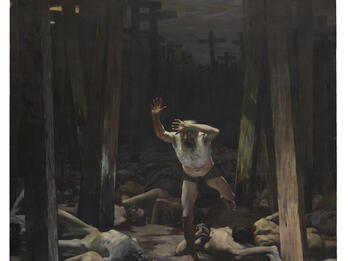
The Wandering Jew
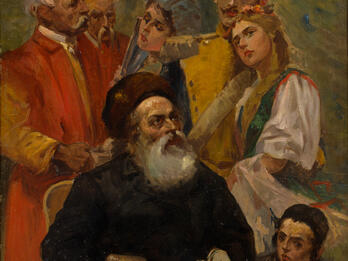
Jankiel’s Concert


